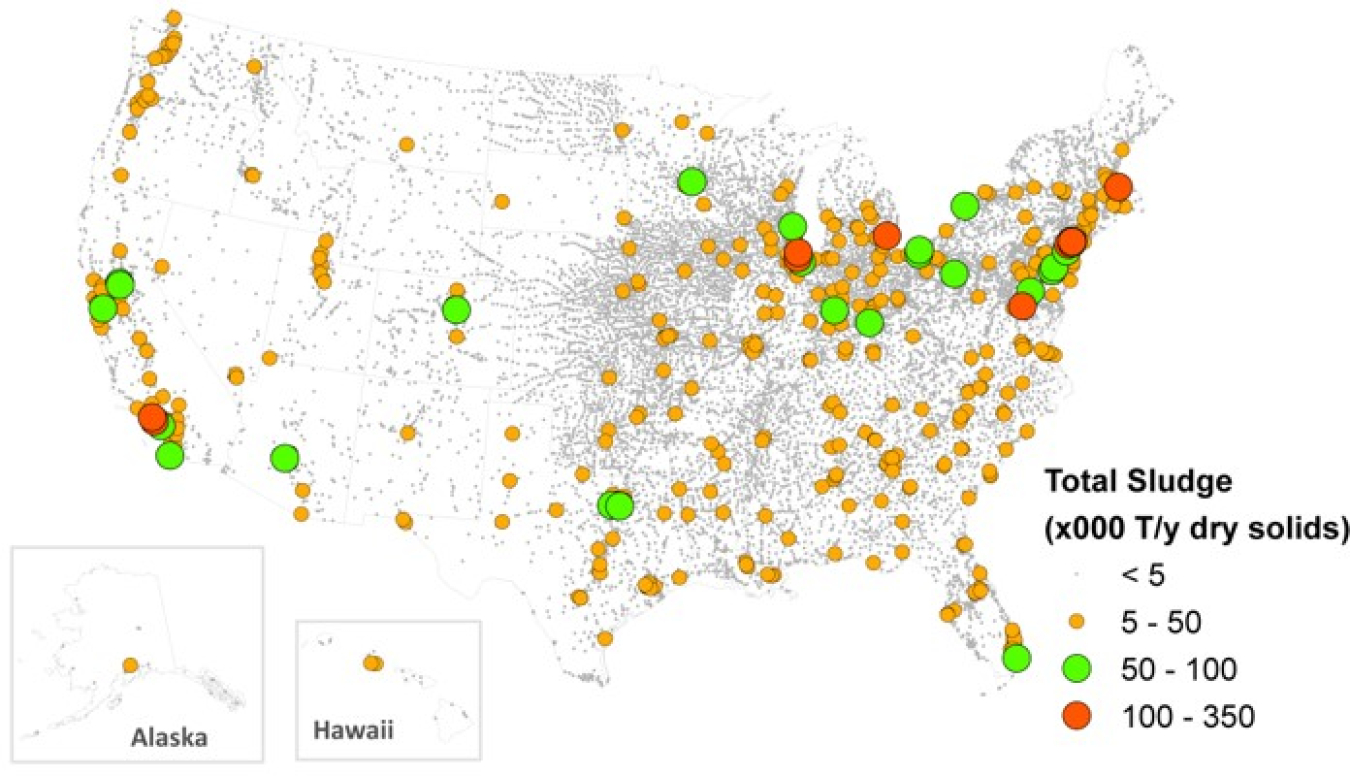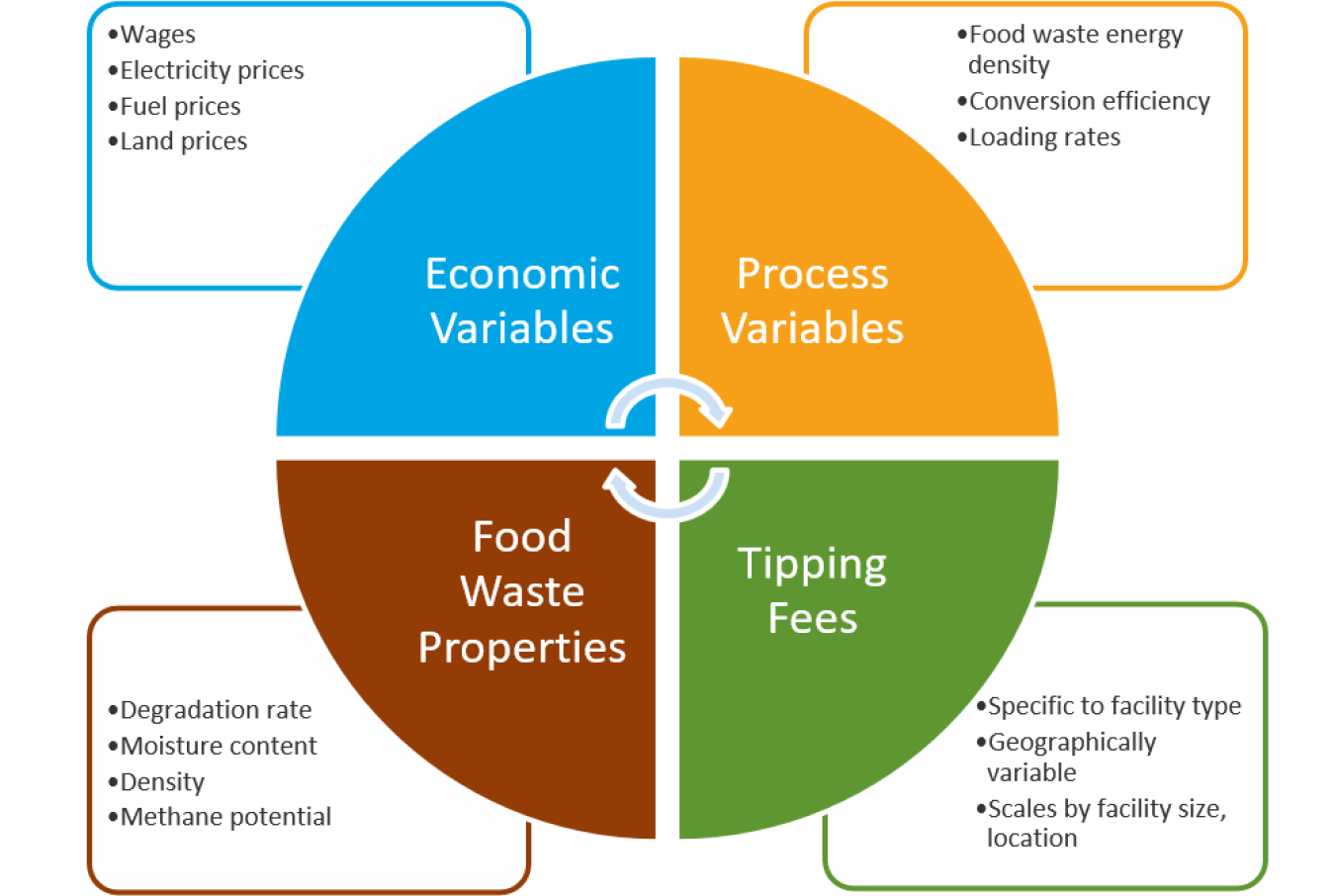
Technology Manager, Conversion Research and Development
Read Beau's bio ►
Meet the other bloggers ►
Return to Bioprose blog ►
BIOPROSE BLOG
In 2015, the U.S. Department of Energy’s (DOE’s) National Renewable Energy Laboratory (NREL) and Pacific Northwest National Laboratory (PNNL) embarked on a first-of-its-kind nationwide resource assessment to understand just how much organic waste is generated each year and how much of this waste is beneficially used.
After working closely with each state, the research teams determined that the United States generates more than 77 million dry tons of organic waste material each year. Of this amount, only about 27 million dry tons is used in applications such as composting, or as a feedstock for waste-to-energy technologies such as anaerobic digestion or incineration.

Example of wastewater treatment plant sludge waste resource availability. More than 14 million dry tons/year of sludge is generated during wastewater treatment operations. This feedstock represents a potential biofuel, bioproduct, or biopower feedstock.
State- and Local-Level Analytical Discoveries
In the course of this analysis, not only did the NREL and PNNL teams quantify the amount of waste available for resource and energy recovery, they also quantified the availability at a county level and the current costs of managing these wastes based on transportation costs, local and state policies, and market factors.

When considering strategies for resource and energy recovery from waste, a variety of social, economic, and environmental factors are in play. The above diagram represents just a few variables that the NREL team has factored into its economic analyses.
From these analyses it was determined that organic waste has:
- Significant availability across the country
- Immediate environmental and social sustainability liability (e.g., fugitive methane emissions, odor control problems, increasing costs of disposal)
- Become increasingly expensive to manage as new policies are implemented.
Around the country, state and local governments are encouraging (and in some places requiring) the development of waste resource and energy recovery plans. However, development of waste management plans is an inherently local issue and will require locally-tailored solutions.
Opportunity for U.S. Municipalities: Receive Technical Assistance from DOE National Laboratories
Now that these nationwide resource and economic assessments have concluded, the team at NREL is shifting focus to lend its technical expertise to communities across the United States. In Spring 2021, the research team will solicit requests for Technical Assistance from any U.S. municipality on a variety of topics. If selected, the Bioenergy Technologies Office will fund up to 40 hours of DOE National Laboratory scientists’ and analysts’ expertise at no expense to the municipality.
For example, a community could apply to have the DOE team review their jurisdiction’s waste data to quantify how much is present and the associated greenhouse gas emissions. Another community might want to have the DOE National Laboratory analysts perform a techno-economic analysis on how much it would cost to implement a composting program versus other commercially-available solutions. Each application is expected to be different, and it is anticipated that up to 25 different proposals will be funded in fiscal year 2021.
For more information on this program, please visit the Technical Assistance web page. Interested communities are also encouraged to attend a webinar hosted by NREL on March 18, 2021, to learn more.

